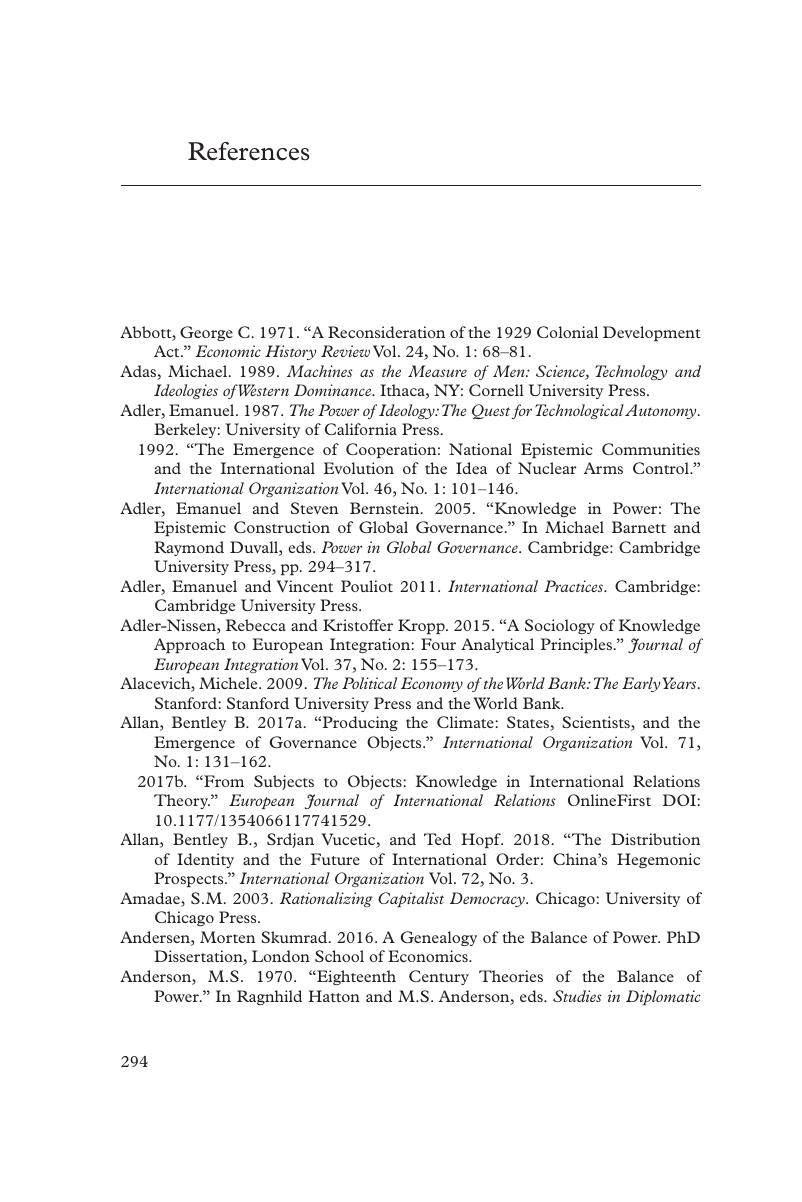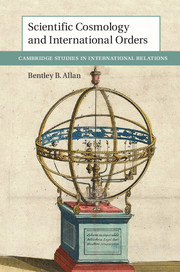Book contents
- Scientific Cosmology and International Orders
- Cambridge Studies in International Relations: 147
- Scientific Cosmology and International Orders
- Copyright page
- Dedication
- Contents
- Figures
- Tables
- Acknowledgements
- 1 Introduction: Science and the Transformation of International Politics
- 2 Cosmology and Change in International Orders
- 3 Natural Philosophy in Balance of Power Europe, 1550–1815
- 4 Darwin, Social Knowledge, and Development in the British Colonial Office and the League of Nations, 1850–1945
- 5 Neoclassical Economics and the Rise of Growth in the World Bank and Postwar International Order, 1945–2015
- 6 Conclusion: The Future of Cosmological Change
- Methodological Appendix
- References
- Index
- Cambridge Studies in International Relations
- References
References
Published online by Cambridge University Press: 27 April 2018
- Scientific Cosmology and International Orders
- Cambridge Studies in International Relations: 147
- Scientific Cosmology and International Orders
- Copyright page
- Dedication
- Contents
- Figures
- Tables
- Acknowledgements
- 1 Introduction: Science and the Transformation of International Politics
- 2 Cosmology and Change in International Orders
- 3 Natural Philosophy in Balance of Power Europe, 1550–1815
- 4 Darwin, Social Knowledge, and Development in the British Colonial Office and the League of Nations, 1850–1945
- 5 Neoclassical Economics and the Rise of Growth in the World Bank and Postwar International Order, 1945–2015
- 6 Conclusion: The Future of Cosmological Change
- Methodological Appendix
- References
- Index
- Cambridge Studies in International Relations
- References
Summary

- Type
- Chapter
- Information
- Scientific Cosmology and International Orders , pp. 294 - 330Publisher: Cambridge University PressPrint publication year: 2018



